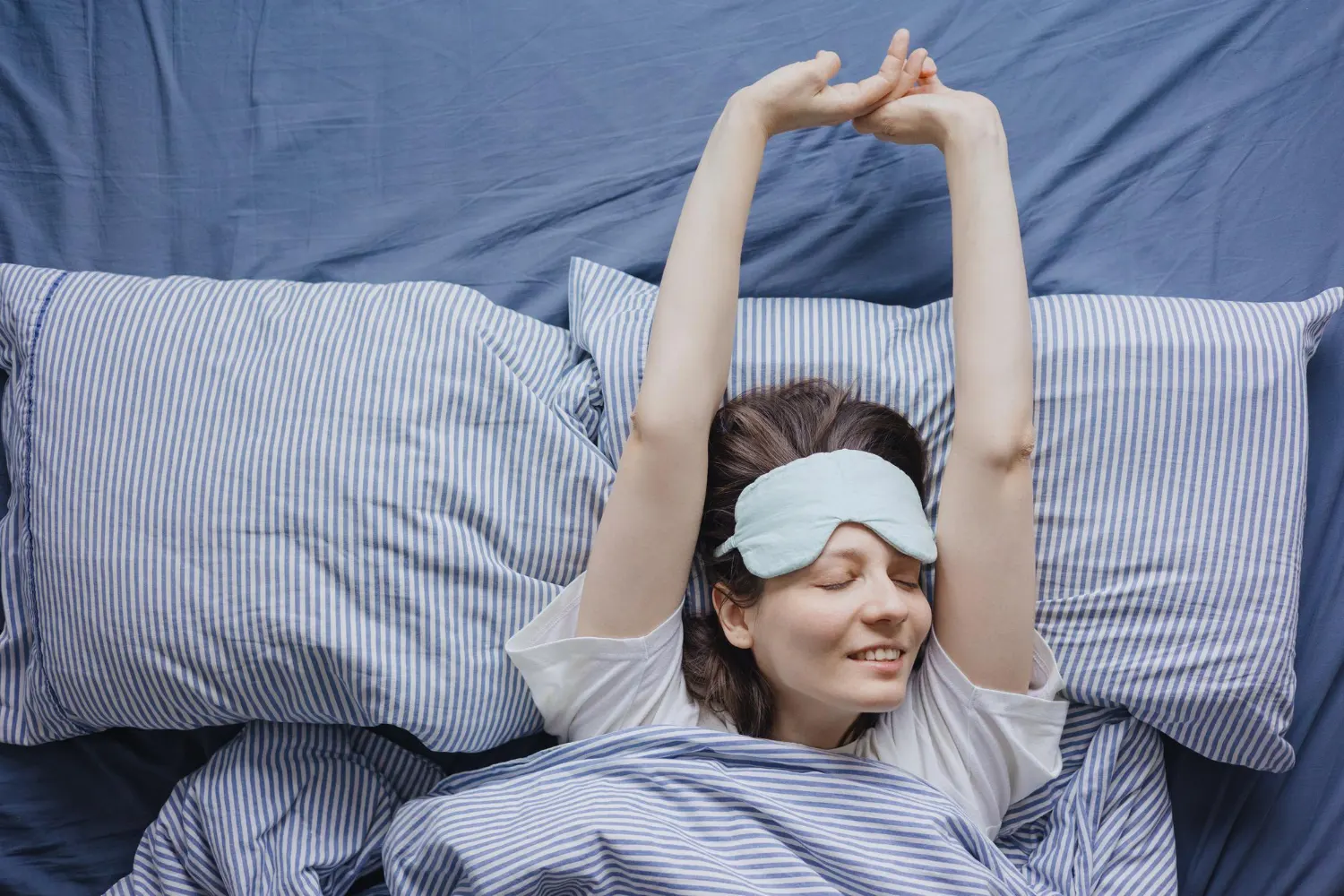In our modern, fast-paced society, quality sleep often becomes a casualty of endless to-do lists, digital distractions, and stressful routines. Yet, sleep remains one of the most crucial pillars of overall health. Adequate, restorative sleep supports the immune system, enhances cognitive functions, and regulates emotional well-being. Research has shown that poor sleep quality can contribute to chronic health conditions such as obesity, diabetes, cardiovascular disease, and even mental health disorders (Hirshkowitz et al., 2015).
This guide provides an in-depth, evidence-based look at natural strategies for enhancing sleep quality over time. By adopting proven sleep hygiene practices, mindfulness techniques, lifestyle modifications, and modern sleep tracking technologies, individuals can significantly improve the quality and consistency of their sleep. Our goal is to equip readers with actionable insights and practical tips for transforming their sleep habits—leading to better health, increased productivity, and a more balanced life.
In This Article
The Importance of Quality Sleep
Sleep is far more than a period of rest. It is a dynamic process that plays a critical role in physical restoration, memory consolidation, and emotional regulation. Here are some key reasons why quality sleep is essential:
- Physical Restoration: Sleep allows the body to repair cells, regenerate tissues, and balance hormones. This restorative process helps maintain muscle and tissue health, supports immune function, and contributes to overall physical recovery.
- Cognitive Function: During sleep, the brain processes and consolidates information acquired during the day. This process is essential for learning, memory retention, and problem-solving.
- Emotional Regulation: Adequate sleep supports mental health by stabilizing mood and reducing stress levels. Lack of sleep is often linked to irritability, anxiety, and even depression.
- Metabolic Health: Sleep influences metabolism and appetite-regulating hormones. Poor sleep quality has been associated with weight gain and an increased risk of metabolic disorders.
- Productivity and Safety: Restorative sleep enhances concentration, decision-making, and reaction times. Inadequate sleep can impair performance and increase the risk of accidents.
Investing in quality sleep is, therefore, an investment in your long-term health and well-being.
Common Challenges to Achieving Restorative Sleep
Despite knowing the benefits, many people struggle to achieve the restorative sleep they need. Several factors can impede good sleep habits, including:
Digital Distractions and Irregular Schedules
- Screen Exposure: The blue light emitted by smartphones, tablets, and computers interferes with melatonin production—a hormone essential for sleep initiation. This disruption can delay the onset of sleep and reduce sleep quality.
- Erratic Bedtimes: Irregular sleep schedules, often driven by work demands or social activities, disturb the body’s natural circadian rhythm, making it difficult to maintain a consistent sleep pattern.
Environmental Factors
- Lighting: Even small amounts of ambient light can disrupt sleep cycles. A bright or inadequately dark room may prevent the brain from fully transitioning into deep sleep.
- Noise: External noises—from traffic, appliances, or even household activities—can cause frequent awakenings or lighter sleep.
- Comfort: An uncomfortable mattress, inappropriate room temperature, or poor bedding quality can all detract from sleep quality.
Stress and Lifestyle Choices
- High Stress Levels: Chronic stress can lead to a state of hyperarousal, making it challenging for the body and mind to relax at bedtime.
- Poor Diet: Heavy meals, caffeine, and nicotine consumption near bedtime can interfere with the natural process of winding down.
- Lack of Exercise: While regular physical activity promotes better sleep, a sedentary lifestyle can contribute to sleep disturbances and reduced sleep efficiency.
Inconsistent Sleep Hygiene
- Irregular Routines: Without a set pre-sleep ritual, the transition to sleep may become inconsistent, resulting in an erratic sleep pattern.
- Unstructured Environment: A bedroom used for multiple activities—work, eating, and entertainment—can confuse the brain’s association with sleep, reducing its effectiveness as a rest haven.
Addressing these challenges requires a comprehensive, multifaceted approach that not only changes nighttime behaviors but also supports healthier routines throughout the day.
Evidence-Based Strategies for Natural Sleep Improvement
Improving sleep quality naturally involves several interrelated strategies. The following evidence-based approaches have been shown to promote better sleep patterns and enhance overall well-being:
1. Establishing a Consistent Sleep Routine
A regular sleep schedule is fundamental for regulating your body’s internal clock. Going to bed and waking up at the same time every day—even on weekends—reinforces the natural sleep-wake cycle, making it easier to fall asleep and wake up refreshed.
2. Creating an Optimized Sleep Environment
Your bedroom should serve as a sanctuary for sleep. Optimizing your sleep environment involves reducing light, noise, and distractions while ensuring that your bedding and room conditions support deep, uninterrupted sleep. Key factors include:
- Darkness: Use blackout curtains or an eye mask to eliminate ambient light.
- Silence: Utilize earplugs or a white noise machine to mask disruptive sounds.
- Comfort: Invest in a high-quality mattress and pillows, and maintain an optimal room temperature—typically between 60-67°F (15-19°C).
3. Limiting Digital Distractions Before Bed
Reducing screen time in the hour leading up to bedtime is crucial. Avoid using devices that emit blue light, and instead, engage in activities that help you unwind, such as reading a book, meditating, or listening to calming music. This practice helps your body naturally produce melatonin and signals that it’s time to sleep.
4. Incorporating Mindfulness and Relaxation Techniques
Mindfulness-based practices can significantly reduce stress and promote relaxation. Techniques such as deep breathing, progressive muscle relaxation, and guided meditation help lower heart rate and create a sense of calm before bedtime. Research supports that these practices can reduce insomnia symptoms and improve overall sleep quality (Ong et al., 2014).
5. Making Nutritional and Lifestyle Adjustments
What you eat and how you live during the day have a direct impact on your sleep. Consider these adjustments:
- Balanced Diet: Incorporate foods rich in magnesium, tryptophan, and melatonin—such as leafy greens, nuts, dairy, and lean proteins—to support healthy sleep.
- Avoid Stimulants: Limit caffeine and nicotine intake in the afternoon and evening, as these substances can delay sleep onset.
- Regular Physical Activity: Engage in moderate exercise during the day, which can help reduce stress and promote deeper sleep at night. However, avoid vigorous activity right before bedtime.
6. Leveraging Sleep Tracking Technology
Modern sleep trackers and smartphone apps offer valuable insights into your sleep patterns. These devices measure sleep duration, quality, and interruptions, allowing you to identify trends and areas for improvement. Tracking your sleep can help you adjust your routine and create an environment more conducive to restorative rest.
Natural Sleep Improvement Strategies: Detailed Overview
To make the above strategies easier to understand and implement, the following two tables break down the key approaches and their supporting evidence.
Table 1. Natural Sleep Improvement Strategies
This table summarizes the core strategies along with a brief description and the primary benefits.
| Strategy | Description | Key Benefits |
|---|---|---|
| Consistent Sleep Routine | Set fixed times for going to bed and waking up every day to regulate your circadian rhythm. | Promotes regular sleep cycles; improves overall sleep predictability and quality. |
| Optimized Sleep Environment | Create a dark, quiet, and cool bedroom using blackout curtains, white noise machines, and comfortable bedding. | Minimizes disturbances; enhances the depth and continuity of sleep. |
| Digital Detox Before Bed | Limit screen time and exposure to blue light by avoiding digital devices at least 60 minutes before bedtime. | Facilitates natural melatonin production; reduces sleep latency and improves sleep onset. |
| Mindfulness and Relaxation | Incorporate practices such as meditation, deep breathing exercises, and progressive muscle relaxation to ease tension. | Reduces stress and anxiety; signals the body to transition into sleep mode more effectively. |
| Nutritional and Lifestyle Changes | Adjust diet to include sleep-supportive nutrients and engage in regular, moderate physical activity during the day. | Balances energy levels; helps regulate metabolic processes that affect sleep. |
| Sleep Tracking Technology | Use wearable devices or mobile apps to monitor sleep patterns, analyze sleep cycles, and track improvements over time. | Provides personalized feedback; enables data-driven adjustments to enhance sleep quality. |
Table 2. Supporting Evidence for Sleep Strategies
This table links each strategy with the supporting research or evidence.
| Strategy | Evidence Support |
|---|---|
| Consistent Sleep Routine | Supported by studies emphasizing the role of regular sleep–wake cycles in improving circadian rhythm stability (Hirshkowitz et al., 2015). |
| Optimized Sleep Environment | Environmental sleep research highlights the benefits of reducing light and noise for deep, uninterrupted sleep. |
| Digital Detox Before Bed | Research on blue light exposure shows that reducing screen time before bed enhances melatonin production and sleep quality. |
| Mindfulness and Relaxation | Mindfulness-based interventions have been shown to reduce insomnia symptoms and promote relaxation (Ong et al., 2014). |
| Nutritional and Lifestyle Changes | Nutritional studies and exercise research indicate that diet and regular physical activity are key factors in sleep health. |
| Sleep Tracking Technology | Recent studies validate the role of digital tracking in providing actionable insights that lead to behavioral changes for better sleep. |
Note: These tables have been split into two sections to ensure readability on both mobile and desktop screens. On mobile devices, users will see a streamlined view that focuses on one aspect per table, while desktop users can view the full breadth of information side by side.
Practical Tips for Implementing Natural Sleep Improvement
To turn these strategies into daily habits, consider the following detailed, actionable tips:
- Develop a Wind-Down Ritual:
Dedicate at least 30 to 45 minutes before bedtime to wind down. Instead of scrolling through your phone or watching television, try reading a book, listening to soothing music, or engaging in gentle stretching exercises. Establishing a routine that signals the body it’s time to relax can lead to a smoother transition to sleep. - Keep a Sleep Diary:
Record your sleep patterns over several weeks. Note your bedtime, wake-up time, any awakenings during the night, and how you feel in the morning. Over time, this diary can help you identify patterns or triggers that may be affecting your sleep quality. - Limit Caffeine, Nicotine, and Alcohol:
Avoid consuming stimulants such as caffeine and nicotine after mid-afternoon. Additionally, while alcohol might initially make you feel drowsy, it can disrupt your sleep cycle and reduce the overall quality of sleep. - Practice Gratitude and Journaling:
End your day by writing down three things you are grateful for. This practice can help shift your focus from stress and anxiety to positive thoughts, creating a mental environment that is conducive to relaxation and sleep. - Invest in Quality Bedding:
Your mattress and pillows should provide adequate support and comfort. Experiment with different types of bedding to find what best suits your body and sleeping style. A well-supported sleeping surface can significantly enhance sleep quality. - Schedule Exposure to Natural Light:
Aim to spend at least 20-30 minutes outdoors in the morning. Natural light exposure helps reset your internal clock and can improve your alertness during the day, which in turn contributes to better sleep at night. - Set Up a Digital Curfew:
Create a “digital sunset” by turning off electronic devices at least 60 minutes before bedtime. Replace screen time with calming activities like meditation or a warm cup of herbal tea, which can further relax your body and mind. - Create a Relaxing Bedroom Ambience:
Consider using essential oils like lavender or chamomile in a diffuser. These scents are known for their calming properties and can help signal to your brain that it’s time to wind down.
The Role of Digital Sleep Tracking
Digital sleep tracking has emerged as a powerful tool in the quest for better sleep. Wearable devices and mobile apps provide a wealth of data about your sleep patterns, from the duration and quality of sleep to the amount of time spent in deep or REM sleep. Here’s how leveraging technology can make a difference:
- Personalized Feedback:
Sleep trackers offer customized insights based on your unique sleep data. For instance, if you consistently wake up at the same time during the night, your tracker might suggest adjustments to your bedtime routine. - Data-Driven Adjustments:
By analyzing your sleep metrics over time, you can identify trends and correlations between your daily habits and your sleep quality. This data can help you refine your routines and make more informed decisions about lifestyle changes. - Early Detection of Sleep Issues:
Consistent patterns of poor sleep, such as frequent awakenings or insufficient deep sleep, can serve as early indicators of underlying health issues. With digital tracking, you can proactively discuss these trends with a healthcare provider. - Goal Setting and Motivation:
Many sleep tracking apps allow you to set sleep goals and monitor progress. Seeing improvements over time can be a strong motivator to continue healthy sleep habits.
Lifestyle Adjustments That Enhance Sleep Quality
Beyond the strategies and tools mentioned, your daytime habits and overall lifestyle have a profound effect on your sleep. Consider these lifestyle adjustments to further enhance your nightly rest:
- Regular Physical Activity:
Incorporate moderate exercise—such as brisk walking, yoga, or cycling—into your daily routine. Exercise not only reduces stress but also helps regulate your body’s sleep-wake cycle. Avoid strenuous workouts close to bedtime to prevent heightened alertness. - Balanced Nutrition:
A diet rich in whole foods, lean proteins, and complex carbohydrates supports metabolic health and energy balance. Certain foods, like those high in magnesium (e.g., leafy greens and nuts) or tryptophan (e.g., dairy and turkey), can promote the production of sleep-regulating hormones. - Stress Management Techniques:
Chronic stress can interfere with the ability to relax at night. Integrate practices such as mindfulness meditation, journaling, or even brief walks during the day to manage stress levels effectively. - Structured Daily Routine:
Maintaining a regular daily schedule—including set times for meals, work, and leisure—helps stabilize your internal clock. A structured routine can ease the transition into sleep by creating predictable patterns in your daily life. - Limiting Naps:
While short naps can be beneficial, long or irregular daytime naps can disrupt nighttime sleep. If you choose to nap, try to keep it brief—ideally under 20-30 minutes—and avoid late-afternoon naps.
Case Study: A Journey to Restorative Sleep
Consider the experience of Daniel, a 42-year-old marketing professional who had long struggled with insomnia and daytime fatigue. Daniel’s busy schedule and constant connectivity had left him feeling chronically sleep-deprived. After consulting with a sleep specialist, he decided to overhaul his sleep routine using a multifaceted approach:
- Consistent Sleep Schedule:
Daniel committed to going to bed at 10:30 p.m. and waking up at 6:30 a.m. every day, even on weekends. Over time, this consistency helped reset his internal clock and improved his sleep onset. - Optimizing His Environment:
He invested in blackout curtains, a new ergonomic mattress, and a white noise machine to minimize disruptions. The transformation of his bedroom into a dedicated sleep space was a key turning point. - Digital Detox and Relaxation:
Daniel implemented a strict digital curfew—turning off all electronic devices 60 minutes before bedtime—and replaced his evening screen time with guided meditation and a warm herbal tea ritual. - Adopting Mindfulness Practices:
By incorporating a daily mindfulness practice that included deep breathing and progressive muscle relaxation, Daniel was able to reduce his stress levels significantly, facilitating a smoother transition to sleep. - Using a Sleep Tracker:
Finally, Daniel began using a wearable sleep tracker that monitored his sleep stages. The data revealed that his deep sleep had improved dramatically after implementing these changes, confirming the effectiveness of his new routine.
Within several months, Daniel’s sleep quality improved markedly. He reported fewer nighttime awakenings, felt more refreshed upon waking, and experienced an overall improvement in his mood and productivity. His journey underscores how a holistic approach—blending environmental adjustments, lifestyle changes, and technology—can lead to lasting improvements in sleep quality.
Conclusion
Enhancing your sleep quality naturally is a journey that involves both intentional changes to your nighttime habits and broader lifestyle adjustments. By establishing a consistent sleep routine, optimizing your sleep environment, reducing digital distractions, incorporating mindfulness practices, and leveraging modern sleep tracking technology, you can create a robust framework for restorative sleep. Small, evidence-based modifications in your daily routine can lead to significant improvements—not only in your sleep but also in your overall health, cognitive function, and emotional balance.
Quality sleep is essential for physical restoration, mental clarity, and emotional well-being. As you experiment with different strategies and tailor them to your unique needs, you’ll likely discover that investing in good sleep is one of the most valuable steps you can take toward a healthier, more productive life.
References
Hirshkowitz, M., Whiton, K., Albert, S. M., Alessi, C., Bruni, O., DonCarlos, L., … & Adams Hillard, P. J. (2015). National Sleep Foundation’s sleep time duration recommendations: methodology and results summary. Sleep Health, 1(1), 40–43.
Ong, J. C., Shapiro, S. L., & Manber, R. (2014). Mindfulness meditation and cognitive behavioral therapy for insomnia: A naturalistic 12‐month follow‐up. Explore: The Journal of Science and Healing, 10(1), 30–36.
Walch, O. J., Cochran, A., & Forger, D. B. (2016). A global quantification of “normal” sleep schedules using smartphone data. Science Advances, 2(5), e1501705.








0 Comments